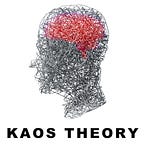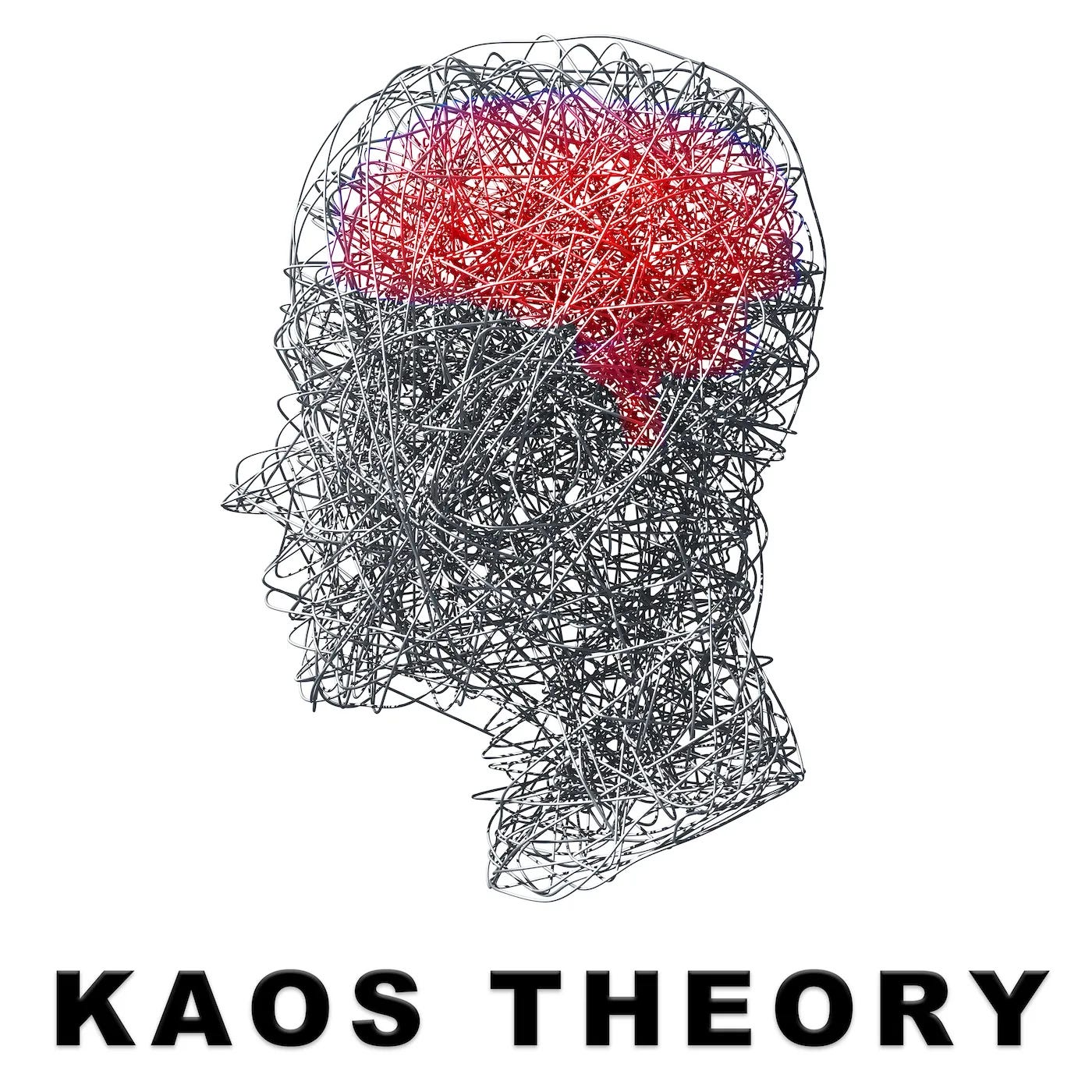Welcome to KAOS THEORY — a podcast collaboration between Grant Williams and me that focuses on the intersection of Macroeconomics and Geopolitics in an increasingly disorderly world.
8/8/25: Episode 10 — Kim Ghattas
We are excited to welcome Kim Ghattas, Emmy Award winning Middle East expert and author of Black Wave: Saudi Arabia, Iran, and the Forty-Year Rivalry that Unraveled Culture, Religion, and Collective Memory in the Middle East.
Kim hails from Lebanon and brings not only a global, geopolitical perspective but also a personal perspective to her treatment of the incredibly nuanced power politics, incentives, and underlying root causes of conflict in the Middle East.
In this fascinating hour, we delve into the myriad sources of geopolitical fracture in the region: secularism vs. fundamentalism, establishment monarchy vs. revolutionary forces, Sunni vs. Shia.
Speaking from the outskirts of Beirut, Kim examines how three seemingly unrelated events in 1979—the Iranian Revolution, the siege of Mecca’s Holy Mosque, and the Soviet invasion of Afghanistan—triggered a cultural and political upheaval that set Saudi Arabia and Iran on a path from cooperation to bitter rivalry. We delve into why 1979 was a pivotal year for the region and drill down to the downstream impacts on multiple countries in the region.
Kim traces how Iran consolidated power under Ayatollah Khomeini, built proxy networks across the region, and how Saudi Arabia, learning from the Shah’s fall, deepened its alliance with religious clerics—fueling Sunni movements with often unpredictable consequences.
The conversation also looks ahead, as Kim argues the Middle East is shifting from religious fundamentalism toward populism and nationalism, and previews her upcoming work exploring Iran’s troubled history with the US, Iran’s nuclear program and unexpected episodes of covert cooperation, including Israeli arms sales to Tehran in the 1980s.
Where you can find Kim Ghattas
LinkedIn: https://www.linkedin.com/in/kimghattas/
Black Wave on Amazon: https://a.co/d/h6LG6Kz
Show Notes
We didn’t get to cover all of the topics here, but I include my preparation notes here to provide a rough guide to the structure of our conversation on a very complex topic:
KAOS THEORY 10: Kim Ghattas Detailed Interview Agenda
I. INTRODUCTION & FRAMING
Kim Ghattas Bio (Full Text from Your Notes):
Emmy Award-winning Middle East expert, author and journalist with 20+ years of experience covering the Middle East, international affairs, and U.S. foreign policy. Contributing writer for The Atlantic and contributing editor at the Financial Times. Regular commentator on CNN, NPR, MSNBC, and others.
Leveraging firsthand knowledge of the Arab world and ongoing access to key decision-makers in the region and the US, I provide incisive analysis of global events and geopolitical trends are highly sought after by policymakers, institutions and investors. My experience establishing BBC operations in Beirut, running a family company and serving on a variety of boards, add unique expertise in management, crisis advisory and contingency planning.
Author of the New York Times bestseller The Secretary (2013) and Black Wave (2020), a New York Times Top 100 Notable Book. My upcoming book explores the U.S.-Iran enmity over four decades.
I serve on the boards of the American University of Beirut, the Center for Global Pluralism and advisory board of the Atlas for Impunity. Former chair of the board for the Arab Reporters for Investigative Journalism network.
Distinguished Inaugural Carnegie Fellow at Columbia University's Institute for Global Policy (2023-2024), non-resident Senior Fellow at the Carnegie Endowment for International Peace (2017–2022), Public Policy Fellow at the Woodrow Wilson Center (2017), and a Civitella Ranieri Fellow (2019).
Framing:
Soundbite Q: “Your book asks the haunting question: ‘What happened to us?’ After writing Black Wave, what’s your answer?”
II. THE 1979 CATALYST
Soundbite Q: “You identify 1979 as the turning point—why that year?”
Context to cover:
Iran: Islamic Revolution, overthrow of monarchy → Shia resurgence, revolutionary export.
Saudi Arabia: Wahhabi assertiveness, oil-funded global propagation.
Mecca Siege: Juhayman revolt, internal religious recalibration.
Follow-up Qs:
“What changed in the Saudi-Iran rivalry post-1979?”
“Could this ideological war have been avoided?”
III. COUNTRY DEEP DIVE
1. Saudi Arabia
Role as Sunni custodian, Wahhabi export via petrodollars.
Historical points:
1979 Mecca siege.
1987 Hajj protests (Iranian pilgrims killed).
Oil weaponization: 1986 price crash to hurt Iran.
Saddam’s Kuwait invasion → Saudis call U.S. troops (1990) → Bin Laden radicalization.
Al-Qaeda spiral: 1995 bombing → 9/11 (15 Saudis) → 2003 Riyadh attacks.
Soundbite Q: “How did the House of Saud reconcile modernization with Wahhabi orthodoxy—was it a deal with the devil?”
Probe: MbS—bold break or continuity?
2. Iran
Khomeini’s wilayat al-faqih vs. traditional Shi’a clerics (al-Khoei).
Revolutionary Guards exporting revolution: Hezbollah, Iraqi militias.
Key timeline:
Hostage crisis → Iran-Iraq war → U.S. downs flight 655 (1988).
1989 Khamenei succession → détente after Iraq invades Kuwait.
Soundbite Q: “Why has Iran become the architect of transnational militancy?”
Follow-up: Clerical legitimacy under stress—Mossad infiltration, protests.
3. Lebanon
Proxy battlefield: Civil war, rise of Hezbollah.
Triggers: Israeli 1982 invasion, 1983 U.S. embassy bombing.
Soundbite Q: “You call Lebanon a bellwether—why does its story matter so much?”
4. Egypt
Nasser’s secular nationalism → Sadat’s pivot → assassination.
Intellectual terrorism: Farag Foda killing in 1990s.
Questions:
“Why didn’t fundamentalism consolidate after Sadat?”
“What explains Egypt’s oscillation between Islamism and secularism?”
5. Iraq
Saddam’s Sunni Ba’athism → 2003 invasion → Shia ascendancy → Iran’s dominance.
Zarqawi engineers Sunni-Shia civil war → ISIS emerges.
Soundbite Q: “Did the Iraq War turn Iran into the Middle East’s hegemon?”
Follow-up: “What lesson did the U.S. fail to learn?”
6. Syria
Assad’s survival amid civil war: Iran + Hezbollah + Russia vs. Gulf + West.
Soundbite Q: “How did Assad outlast overwhelming odds—and what does Syria’s future look like?”
7. Pakistan & Afghanistan
Zia’s Islamization (1977), 1986 blasphemy laws; rise of Taliban/al-Qaeda.
Afghan jihad → global jihad pipeline; Peshawar as Islamist hub.
Soundbite Q: “Why did Pakistan become ground zero for jihadist movements?”
IV. CROSS-CUTTING THEMES
Soundbite Q: “Is sectarianism a real driver—or just a smokescreen for deeper political and economic struggles?”
Secularism vs. fundamentalism: Who’s winning?
Role of external powers (US, Israel, Gulf).
Women & the veil as ideological battleground.
V. CLOSING
Soundbite Q: “What divides are reconcilable—and which ones run too deep?”
Prospects for peace: Abraham Accords, regional realignments.
Soundbite Q: “If you could give the next U.S. president one piece of advice on the Middle East, what would it be?”
Wrap with a hopeful note: “After tracing this black wave, do you see light on the horizon?”
Sneak peek at Kim’s next book on U.S.–Iran.







